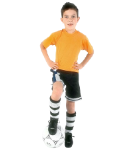Let's learn and talk about feelings, emotions and suggestions.
Don't forget to study the new vocabulary.
Good Advice: advice and suggestions |
Giving advice and making suggestions are two different language functions
MUST/HAVE TO [strong advice]
You must go to the doctor immediately, that looks serious.
You have to take her to that movie, she’s going to love it.
YOU’D BETTER (not) + bare infinitive (colloquial often: YOU BETTER...)
You’d better not call her now, she must be too angry with you
You better come to my house and ask my father
| You can use these to give advice to a friend: SHOULD You should go to the doctor, he’ll tell you what to do You shouldn’t go to bed so late, you need more sleep WHY DON’T YOU I know it’s difficult to find, but why don’t you look on the Internet? Why don’t you wait here for a moment, I’m sure she will be back very soon HOW ABOUT + ING (or YOU + bare infinitive) You look bored. How about going for a walk? We could go to the river. How about you stay here and I go and look for help? |
MUST/HAVE TO [strong advice]
You must go to the doctor immediately, that looks serious.
You have to take her to that movie, she’s going to love it.
YOU’D BETTER (not) + bare infinitive (colloquial often: YOU BETTER...)
You’d better not call her now, she must be too angry with you
You better come to my house and ask my father
SUGGEST (+ that you (should) )
I suggest that you eat more vegetables
I suggest that you should take a holiday, you look so tired
IMPERATIVES (start, stop, try, consider...) + ing
Stop drinking so much coffee, it’s not healthy
Start going to the gym
Try talking to him, you may convince him
Consider buying a new bicycle and give the old one to your little brother
Suggestions: taking decisions together
You can use these to make suggestions when deciding what to do with our friends (together):
LET’S + bare infinitive
I’m bored. Let’s play a video game or something
Hey, let’s go for a walk
I’m bored. Let’s play a video game or something
Hey, let’s go for a walk
WHY DON’T WE...? Why don’t we have another beer? I’m so thirsty Why don’t we look for a better beach? This one is packed with people WHAT/HOW ABOUT? + ing or noun What about taking a taxi? I can’t give another step Do you want to watch a movie? How about ‘Forrest Gump’? -ING + IS ONE IDEA Having the party in the garden is one idea Telling Sam is one idea. Or we can also tell Mike |














